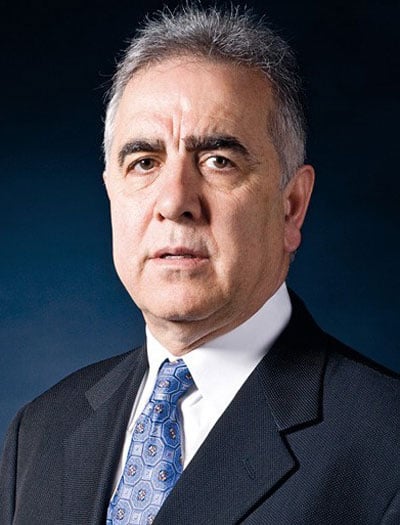By Harut Sassounian
Publisher, The California Courier
Recently I came across a document from the U.S. archives that describes the fascinating conversation between Anastas Mikoyan, First Deputy Chairman of the Council of Ministers of the Soviet Union, and Vice President Richard Nixon on July 25, 1959 during the latter’s visit to Moscow. The two had met earlier during Mikoyan’s historic visit to the United States.
The discussion between the two rival leaders at the height of the Cold War was polite, but animated. Nixon praised Mikoyan “who had left in the United States many friends who admire him for his stamina and agility in expressing his views.” Nixon also stated that “Mikoyan’s visit to the U.S. had broken the ice not only officially but also privately, regarding the respective points of view of the two countries.” The archival document noted that Mikoyan “returned the Vice President’s compliments in kind and added that the Vice President is a great debater who never leaves anyone in his debt.”
The conversation quickly turned political when Mikoyan complained about the inappropriateness of a recent congressional resolution on captive nations — states subjugated to Communist rule, including Armenia. Mikoyan felt that the resolution was intended to undermine Nixon’s visit to the Soviet Union. Nixon gave the excuse that the U.S. Congress is an independent body and not even the President can control its decisions! Vice President Nixon went on to explain: “there are in our population elements, whether Mr. Mikoyan believes they are wrong or not, who feel that governments in their former homelands should be changed. Our Congress often passes resolutions representing the views of those elements, who include such nationalities as Polish, Hungarian, etc. The resolution, and particularly the proclamation of the President, had made a point that it was only an expression of the opinion of American people and the American Government and that they are not attempting to engage in so-called subversive activities.”
Surprisingly, Mikoyan, one of the highest ranking Soviet officials, then brought up his Armenian heritage by telling Nixon that “he was an Armenian, and that although he is not active in the Government of Armenia proper, he knows some 30 Supreme Soviet Deputies of that Republic and all of them have been wondering who gave the American Government the authority to act in their behalf and why the American Government is not doing something for the liberation of really oppressed peoples, such as the Armenian minority in Turkey.”
Mikoyan’s statement was surprising because he was speaking with Vice President Nixon as a Soviet leader, not as an Armenian. Furthermore, Mikoyan was not known as an Armenian nationalist. In fact, he had been blamed for the deaths of many Armenians during the infamous purges under Communist rule. Mikoyan also had not supported the reunion of Karabagh (Artsakh) with Soviet Armenia. These are some of the reasons Armenians were unhappy with the recent decision of the Yerevan City Council to erect Mikoyan’s monument in Yerevan.
A further indication of Mikoyan’s anti-nationalist views is his statement of December 1919, during the short existence of the first independent Republic of Armenia (1918-1920): “Armenian chauvinists relying on the allies of imperialism push forward a criminal idea — the creation of a ‘Great Armenia’ on the borders of Historic Armenia. The absence of Armenians and the presence of an absolute Muslim population there does not concern them…our [Communist] party cannot support the idea of either a ‘Great’ or ‘Small’ Turkish Armenia.” The reality is that the Soviet Union did not defend the rights of the Armenians in Turkey.
However, Mikoyan rightly pointed out that the United States is against “the liberation of oppressed peoples” when “the peoples in question are oppressed by its friends and allies,” such as Turkey, and many others.
Mikoyan also questioned whether the Soviet leaders should pay attention to the positive gestures of the White House or the more hostile reactions of the State Department. Mikoyan “wondered whether the Soviet Union should believe the pronouncements by the President or the Vice President or whether it should regard this statement by the State Department as a direct expression of American policy.” Mikoyan explained that “the President had instructed the Department of State to work out measures for the development of foreign trade [with the Soviet Union]. In view of the actions taken by the State Department it appears that the President wants one thing and the Department of State another.”
Mikoyan’s meeting concluded on a conciliatory note with Vice President Nixon promising that “upon his return to the United States he would work on the problem of trade, but that one must realize that difficulties cannot be resolved by a stroke of pen.”
The above conversation shows that Mikoyan was in fact as “wily” as described by Western officials. He had survived for several decades at the highest echelons of the Soviet Union, ending up as Chairman of the Presidium of the Supreme Soviet, the nominal Head of State, from 1964 until his forced retirement in 1965.




















































